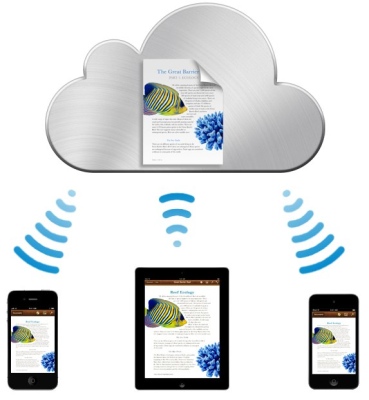Apple is holding its big developers' conference this week in San Francisco, and the event kicked off on Monday with a keynote unveiling some of the new products and features Apple has in store. This includes upgrades to both its Mac and mobile operating systems.
 Apple also introduced a new product, iCloud that will store users' music, photos, apps, calendars, and documents online and then push them to all Apple devices, whether they're iPhones, iPads, iPod Touches, or Macs. The service includes 5 GB of storage for free.
Apple also introduced a new product, iCloud that will store users' music, photos, apps, calendars, and documents online and then push them to all Apple devices, whether they're iPhones, iPads, iPod Touches, or Macs. The service includes 5 GB of storage for free.
Apple is hardly the first company to make a foray into online storage. But with the popularity of Apple's products -- with consumers in general and with educators in particular -- it may be that Apple's new offering will help popularize the idea of cloud computing, a term that's familiar in tech circles but still unclear to a lot of consumers.
CEO Steve Jobs took to the stage at the World Wide Developers Conference on Monday to explain Apple's new service, saying that iCloud was the company's "next big insight." Contending that the PC is no longer the "digital hub for your digital life," Jobs predicted that with iCloud, the company will "demote the PC and the Mac to just be a device" and instead that our digital hub will be "in the cloud." And if nothing else, iCloud offers a way to demonstrate what cloud computing means: it's online storage, accessible anywhere from any device over the Internet. All that data will in fact be stored in massive data centers instead of locally on your hard drive.
But what does iCloud mean for education?

